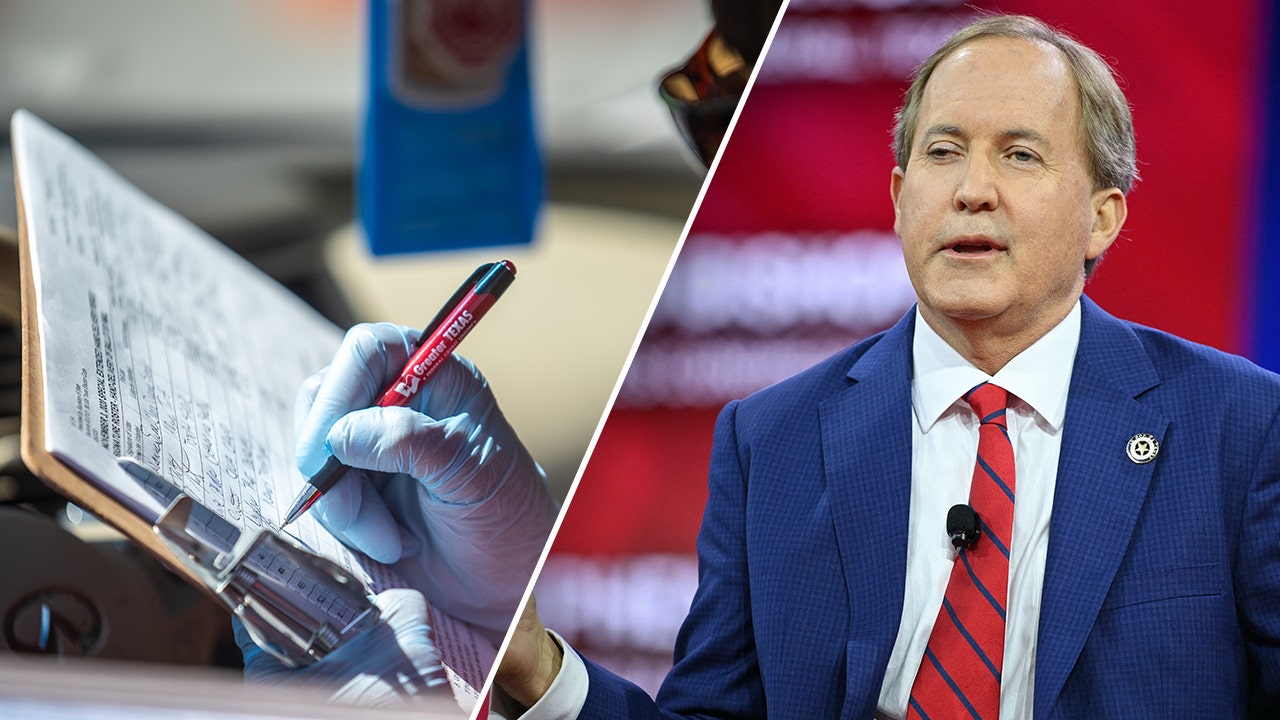Texas Attorney General Ken Paxton’s Push for Voter Registration Integrity
Texas Attorney General Ken Paxton has recently taken a significant step in addressing concerns about voter registration integrity in the Lone Star State. In a letter directed to the Biden-Harris administration, Paxton urged federal officials to provide data that could help identify up to half a million individuals who may be erroneously registered to vote but are not U.S. citizens. This move underscores the ongoing debate surrounding voter eligibility and the measures states are taking to ensure that elections are conducted fairly.
The Legal Framework and Citizenship Verification
Paxton, a Republican, argues that the Biden-Harris administration has "legal obligations" to assist states in verifying the citizenship status of registered voters. He points out that individuals who do not possess a Texas-issued driver’s license or identification card—documents that require citizenship verification—are particularly concerning. Non-U.S. citizens who are lawfully present in the country can obtain these forms of identification, yet they are prohibited from voting.
In his correspondence, Paxton emphasized the importance of compliance with both federal and state election laws, which explicitly prohibit non-citizens from participating in elections. He addressed his letter to Ur Jaddou, the Director of U.S. Citizenship and Immigration Services (USCIS), highlighting the need for cooperation in identifying any non-citizens still on Texas’s voter registration rolls.
The Scale of the Issue
The Texas Attorney General’s office has identified approximately 454,289 registered voters who have never had their citizenship verified. This figure is derived from the Texas Secretary of State’s computerized voter list, which is mandated to be maintained for accuracy. Paxton expressed his belief that while the majority of individuals on this list are likely citizens, there remains a significant uncertainty regarding the eligibility of some voters.
In his letter, Paxton stated, "Although I have no doubt the vast majority of the voters on the list are citizens who are eligible to vote, I am equally certain that Texans have no way of knowing whether or not any of the voters on the list are noncitizens who are ineligible to vote." This statement reflects a broader concern about the integrity of the electoral process, especially in a state where elections can be decided by a narrow margin.
Recent Findings and Ongoing Investigations
Recent audits conducted by the Texas Secretary of State’s office revealed that over 1,300 non-citizens were registered to vote in just four randomly selected counties. This alarming statistic has fueled Paxton’s determination to crack down on non-citizen voting. He has been actively investigating registered voters to ensure compliance with election laws, asserting that "any noncitizens remaining on Texas’s voter registration rolls are identified."
In August, Paxton’s Election Integrity unit conducted searches in three South Texas counties as part of an ongoing investigation into allegations of fraud and ballot harvesting. Furthermore, Texas Governor Greg Abbott announced that since 2021, approximately 6,500 potential non-citizens had been removed from the voter rolls, with around 1,930 of those having a history of voting.
Broader Context and National Implications
The issue of voter registration integrity is not confined to Texas. Similar concerns have arisen in other states, with officials in Oregon recently identifying an additional 302 individuals on their voter rolls who did not provide proof of citizenship during registration. This follows a previous announcement that over 1,200 potential non-citizens had been registered to vote since 2021.
In Arizona, the Supreme Court ruled that nearly 98,000 individuals whose citizenship has not been confirmed will be allowed to vote in upcoming elections. These developments highlight the national implications of voter registration practices and the ongoing debates about election integrity as the 2024 presidential election approaches.
The Call for Legislative Action
Paxton has criticized the lack of legislative action at the federal level, particularly regarding the Safeguard American Voter Eligibility Act (SAVE Act), which would empower states to ensure that only eligible voters are casting ballots. He argues that requiring proof of citizenship is a commonsense measure that can help identify illegal registrations and uphold the integrity of elections.
As the conversation around voter registration and election integrity continues to evolve, the actions taken by state officials like Ken Paxton will undoubtedly play a pivotal role in shaping the landscape of American democracy. The push for transparency and accountability in voter registration processes remains a critical issue as states navigate the complexities of ensuring fair elections.
